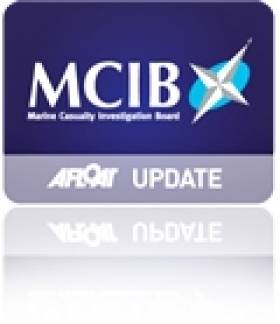Displaying items by tag: Allihies
Dinghy Drowning Report Blames Poor Planning
#MCIB - Marine investigators have reiterated the importance of boaters informing people ashore of planned trips in their report into the drowning of a dinghy sailor in West Cork last autumn.
As reported last August on Afloat.ie, an afternoon sail by a father and son from the Beara Peninsula ended in tragedy after their Enterprise sailing dinghy capsized.
The body of John O'Leary from Allihies was found around 1.30am on Tuesday 14 August, just hours after he and his 18-year-son Christy had abandoned their overturned vessel to attempt the swim to shore.
The official report by the Marine Casualty Investigation Board (MCIB) found that the two had been sailing without incident in the area between Cod's Head and the Cullogh Rock for an hour or so before a gust of wind flipped their dinghy.
Unable to right the vessel, the O'Learys rested on the upturned hull to await assistance. But after many hours had passed and suspecting that the hull was starting to sink, they decided to swim to the shoreline some 800 metres away.
With 200 metres to go, John O'Leary encouraged his son to swim ahead to raise the alarm, which he did minutes later. But in the interim John went missing.
Some time into the search operation launched immediately by Castletownbere RNLI and assisted by the Irish Coast Guard from Allihies, John O'Leary's lifejacket was found in the water, and his body was located shortly after.
The MCIB report found that the Enterprise dinghy the O'Learys were sailing is of a kind notorious for its difficulty to right after capsizing. It was also noted that the craft had an insufficient buoyancy bags, which made it even more difficult to bail out once overturned.
But more importantly, the report found that John O'Leary, as skipper of the dinghy, had not arranged a return time or sailing area with anyone on shore prior to the trip.
"If he had done this, the rescue may have occurred before they decided to enter the water," the report said.
Neither man was wearing a wetsuit, exposing them to "the cold and stresses from the cold" which may have "impaired their decision making process" and prompted their decision to swim from the vessel, it added.
In its recommendations, the MCIB advises all sailors to inform a responsible person ashore of their itinerary, and to stay with their vessel as long as possible in the event of any incident on the water.
The full report into the dinghy capsize is available to download below.
























































